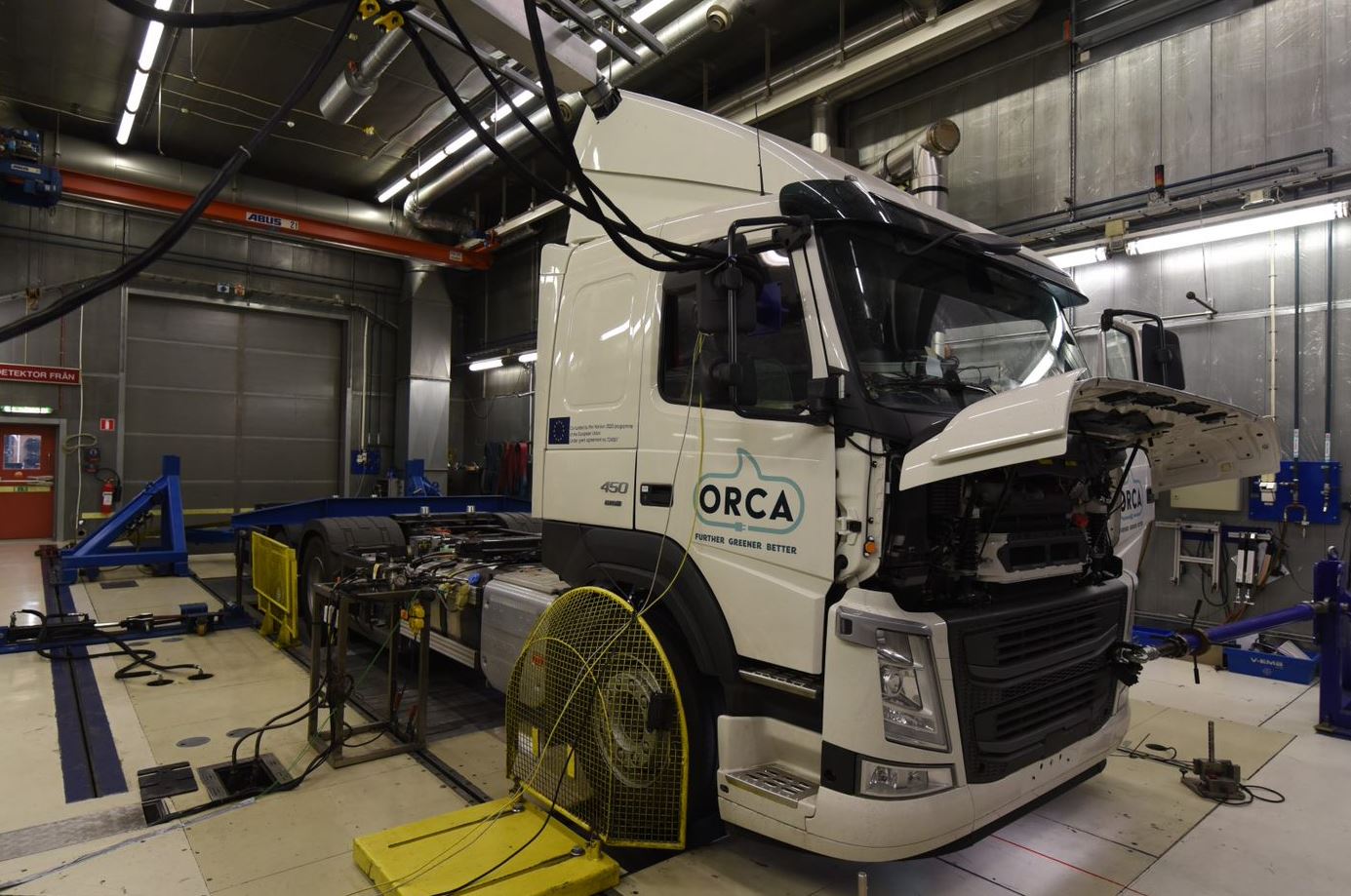Within the ORCA project, various methods and tools have been developed and applied to improve the design and specifications of hybrid powertrain components leading to better efficiency and to downsize the combustion engine of heavy-duty vehicles. Those technical innovations have been assessed with regard to the reduction of the total cost of ownership and effects on the environment.
Building on this, ORCA partners Fraunhofer LBF, TNO and VUB are investigating fuel & emission efficient types of ICE – compressed natural gas (CNG) as well as diesel engines. Using the simulation framework which has been developed in the project helps to develop an efficient variation of powertrain specifications, and thus to an optimized sizing of components.
The existing full vehicle simulation model has been extended for the evaluation of emission analysis and control. In case studies, the usage of both CNG and diesel engine will be investigated and the potential for emission reduction will be assessed. The analyses are performed on engine level with consideration of the operational purpose and strategy as well as relevant load cycles. Therefore comparative fuel & emission analyses are performed using ICE information from stationary set points and a simplified dynamic engine control which ranges from idle condition to high torque & full speed. Both GHG (green house gas) emissions as well as pollutant emissions, will be examined to develop a proper optimization strategy. In the next step, running full vehicle simulations will characterize the energy consumption and emissions of the CNG and the diesel engine. Based on these results the potential of engine downsizing will be estimated.





